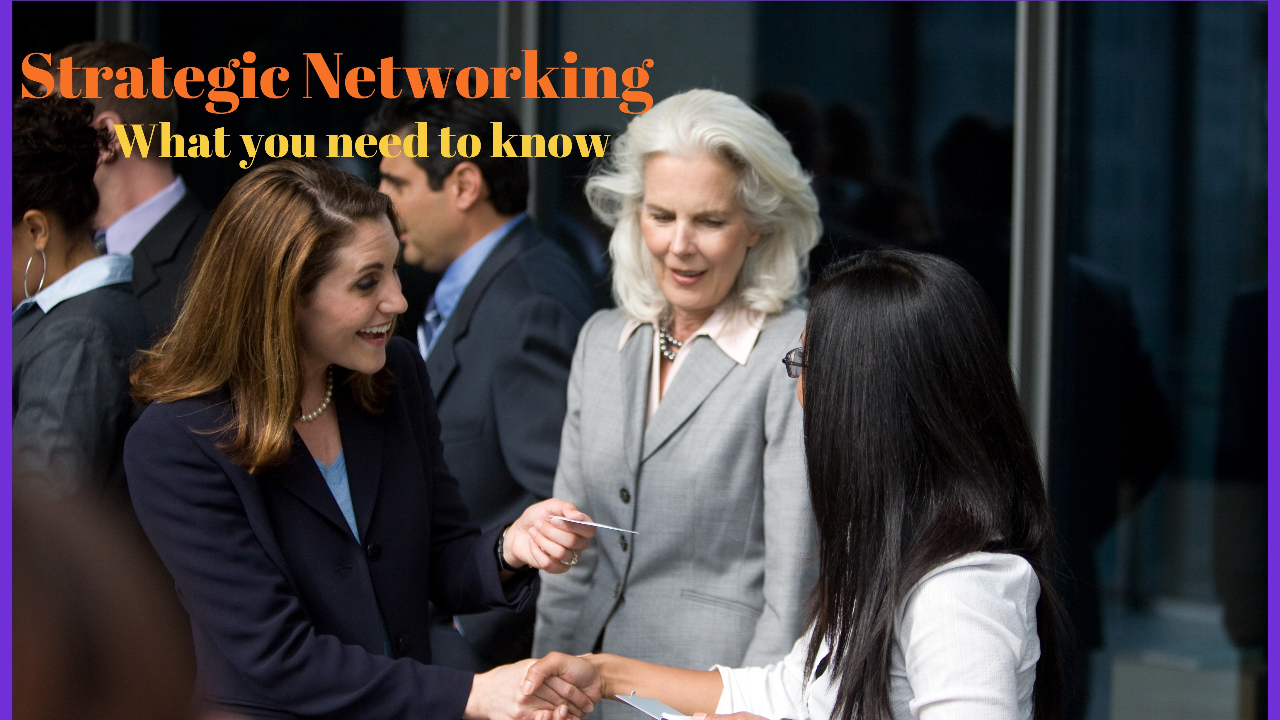How do I learn strategic networking: networking with people you don't like.
Jul 26, 2024
Let me get straight to the point. I hate networking. It's just not my thing at all!
On one hand, I'm an introvert, so I don't get any energy from communicating with lots of people at once, and on the other hand, I often feel it's a waste of time to listen to the chatter of others (read: men). But our company, In Touch female leadership & career academy, has been around for 27 years now, and even though I hate it, I know it's an important part of the game. A very important unwritten rule.
So please continue reading, and I'll share with you how I eventually made it work for me. In a way that suits me better and might also suit you.
Why strategic networking
What I often encounter with the women I coach is that they don't necessarily have a problem with networking itself, but they only network with people they already know and like. I don't call this strategic networking; it's just socializing. I'm not saying you should never do this because even 'socializing' can be useful in achieving your goals. That is, if you dare to express your ambitions/goals. You can read more about this in my blog on how to advance your career.
No, what we're clearly talking about here is strategic networking. You need to know the right people to achieve your goals. And these can be people you don't (yet) know well enough or people you don't particularly like. They might even be people who don't like you. Yes, they really exist.
Remember this: One-third of people like you, one-third don't like you, and one-third don't care. So you can forget about the word 'like' right away. Just to be clear, you don't have to like someone to be friendly! But I'm starting to ramble to much...
What does strategic networking look like
Imagine you're going to a conference on a topic that interests you and that you want to learn more about. You might think, I'll sign up and just go there without any preparation. WRONG. That's not what strategic networking looks like. No, strategic networking involves creating a strategy.
You might think, huh, it should just be enjoyable. Enjoyable is fine, as long as you link it to a strategy. Unless you're already saying, I'm not going to network strategically. Fine, of course, but it won't yield much or enough for your network. And then at the end of the day, you might think: It was nice, lots of information, but networking is pointless for me. Then you might decide never to do it again. Moreover, you might even feel alone all day or have someone hanging around you all day whom you just can't shake off.
So, you establish your strategy, starting with thinking about what you want to achieve.
For example, if you want to expand your network with one of the speakers, you would research beforehand what this speaker will talk about and come up with a question to ask when you're in the audience. By asking your question, you become visible to the speaker, making it easier to connect with them afterwards.
Or
If you want to expand your network with 10 people working in your field, you could start with LinkedIn. You could post a message stating that you're attending this event. Then you could ask who else is going. These are the first contacts you can make. With these contacts, you could arrange to meet at the event itself. Even if you already know these people, they may know others. You could further explore this on LinkedIn.
Or
You receive a list of participants, and if you don't, you can always ask the organization for it. Then you select a few people who seem interesting to you. You look them up on LinkedIn (or Instagram/TikTok/Facebook) and initiate contact that way. You could then arrange to meet them or, when you're there, look for them (read the name tags carefully).
What skills do you need?
Let me start with what you definitely don't need or need less of. And that's (too much) empathy. By this, I mean thinking for the other person. Thoughts like:
- Yes, but who's waiting for me?
- Yes, but that person already has such a high position, who am I?
- Yes, but that other person is already so busy.
- Yes, but they're already in conversation, so it would be rude if I interrupt them now.
Do these thoughts help? No, of course not, so stop them. By the way these thoughts only feed your imposter syndrome!
What does help?
As I mentioned earlier, preparation is key. What helped me most was making a deal with myself that I couldn't leave until I had spoken to at least 3 people I didn't know.
A few things that are important, but I'll also mention the pitfalls here.
- Listen carefully to what the other person says, and you can follow up with questions. Repeating what the other person says also helps because it makes the other person feel heard. But you might already see where this is going. What if you listen a lot and think, this person or what they're saying is totally uninteresting to me? (You might feel this after just 2 minutes). Then leave! Just say: "I'm going to interrupt you because I have a long list of people I want to talk to. Maybe we'll see each other later." Don't say: I'm going to get a drink or go to the bathroom. Otherwise, that person might tag along, and you'll never get rid of them.
- Or what if someone talks so much that they don't ask you any questions in return? Try to find something that was said, respond to that, and say, for example: "Yes, very familiar, I've had a similar experience and..."
- Is someone mainly talking and there is no way to interrupt? Just leave!
- Make sure you're prepared with what you want to say. How will you introduce yourself: Will you say: I'm Monic and I work at In Touch? Or will you say: My name is Monic Buhrs, and 27 years ago, I co-founded In Touch female leadership & career academy with Elisa de Groot. From our company, where we now have 5 partners, I teach women how to navigate the unwritten rules so they can exert more influence. I firmly believe the world will be much better off when women take more control. I've also written 4 books, including the ever- and bestseller, "Stratego for Women." See the difference? I'll write another blog on profiling and explain why it's so important and why it can feel like bluffing!
- And one last, very important tip for you as a woman. Stand next to someone when you're talking to them at a networking event, don't stand opposite of them. Especially not with men. Why: If you stand opposite someone, you can't keep an eye on the network anymore. After all, you have a list of people you still want to talk to. Have you ever been in a situation where you were standing opposite a man and felt like he wasn't listening to you because he wasn't looking at you but past you, for example? This has nothing to do with you being uninteresting; he just wants to keep an eye on the network. And I'll definitely write a blog about this! So for now, take my word for it, and I'll explain it later!

How do you network with people you don't necessarily like
Let's go back to the title of this blog. How do I learn strategic networking: networking with people you don't like. Very simple, think about what I wrote about liking and being liked. 1/3, 1/3, and 1/3, remember? So you don't have to like someone. And that's the big difference with 'just' networking. Again, I find 'just' networking to be 'casual chatting,' which is really different from strategic networking. With strategic networking, you have a goal in mind that you want to achieve.
But if you do have the strong feeling you need to like someone before you can network. Find something about this person that you respect and change your mindset into that instead of thinking of the fact you don't like this person. Bear in mind, you need something from this person to reach your goals. Keep focus on that!

